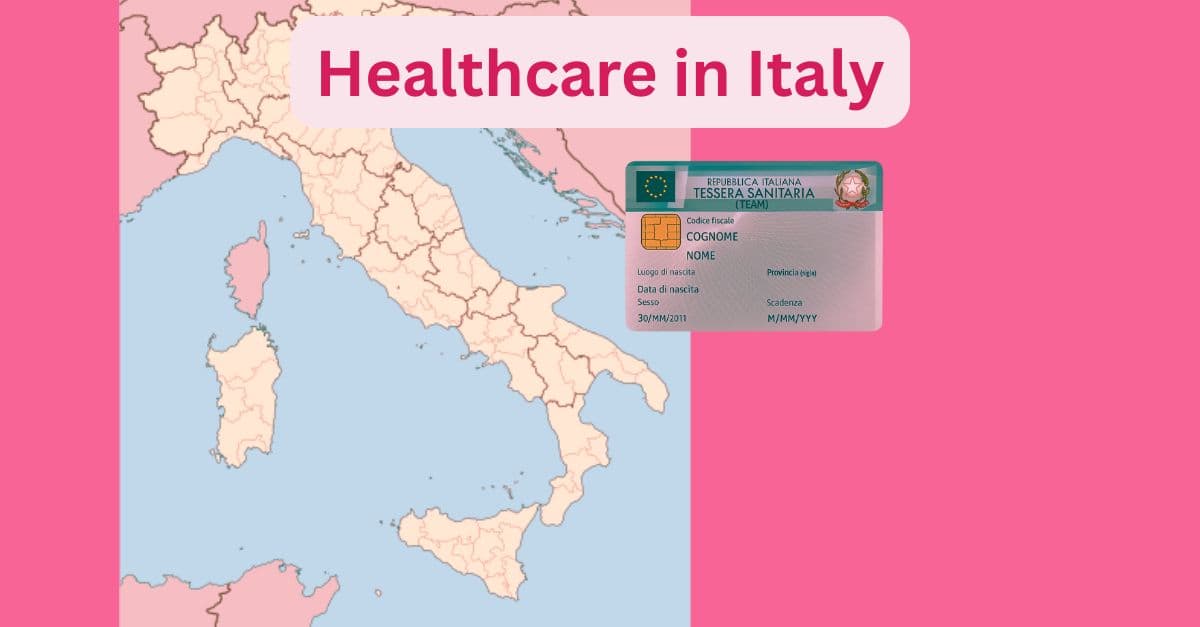So, you’re all set for your UK trip and excited to explore, but what if you need to see a doctor while you’re there? Dealing with health issues in a foreign country can be a bit daunting, but don’t worry – we’ve got your back. This guide will walk you through everything you need to know about seeing a doctor in the UK as a foreigner.
7 Successful Ways for Foreigners to Find a Doctor in the UK
Looking for a doctor in the UK as a foreigner? Navigating the healthcare system can be easier than you think with these helpful tips:
- Use an online doctor in the UK for convenient and affordable consultations and prescriptions.
- Find a local doctor nearby using Google search for options with good reviews and convenient locations.
- Use public health directories to find a general doctor, this can be done through the NHS website.
- Ask for a family doctor to your hotel concierge or Airbnb host, they often have local knowledge but these may be based on connections and come at a higher price.
- Ask local expat groups on social media for recommendations on medical care.
- Visit a walk-in clinic or urgent care facility for non-emergency situations.
- Visit an emergency room for serious health issues.
Online doctors in the UK
Online doctor services are handy for getting medical advice, consultations, and prescriptions online, without leaving your accommodation.
These services are perfect for common travel issues such as sore throats, flu symptoms, and urinary tract infections (UTIs).
When using an online doctor service in the UK, keep these things in mind:
- Accessibility: Online doctor services like Doctorsa are available 24/7, so you can get help anytime, even outside regular clinic hours.
- Convenience: You can easily consult with a doctor and get prescriptions without leaving your hotel room or Airbnb, which saves a lot of time and effort.
- E-prescriptions: Online doctors can often prescribe medication during your consult and send it straight to a nearby pharmacy for easy pickup.
- Cost: Some services are free for NHS patients, but others may charge a fee. Make sure to check the cost before your consultation to avoid any surprises.
- Languages: Lots of online doctor services offer consultations in multiple languages, which is great for non-English speakers.
Using an online doctor service is a quick and efficient way to deal with minor health issues or get initial advice on more serious issues, ensuring that your stay in the UK is as smooth and worry-free as possible.
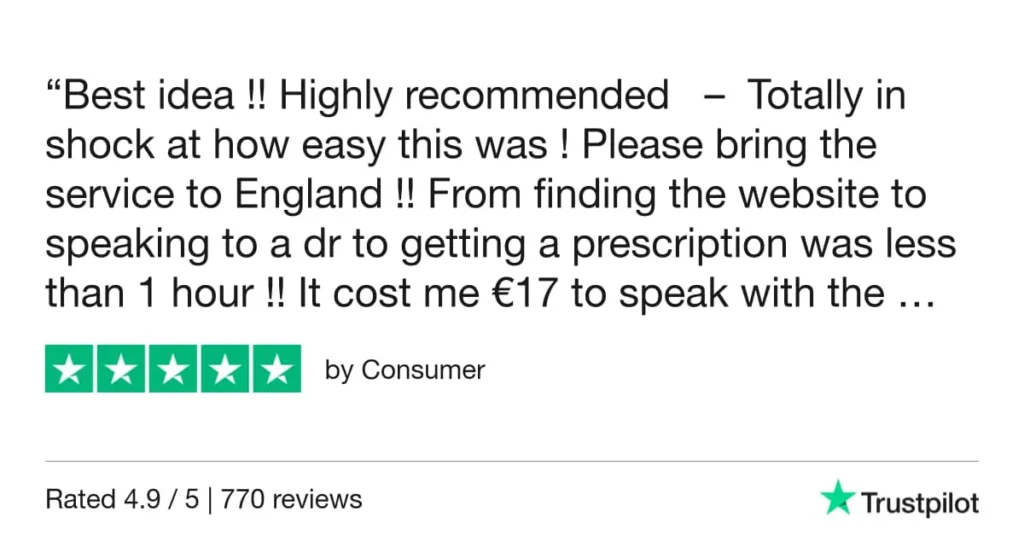
How do I find a primary care physician near me in the UK using Google Search?
You can easily find a doctor near you using Google Search. Here’s a step-by-step guide to help you through the process:
- Start with a Google search using specific terms like “GP near me,” “primary care physician near me,” or “doctor near me.”
- After getting the search results, click on the “Maps” tab to see nearby doctors and view their exact locations, distances, and user reviews and ratings.
- In Google Maps, refine your results using filters. Use the “Open now” filter to find available doctors or the “Top rated” filter for the best-rated primary care physicians.
- Read reviews and ratings to find doctors who have received positive feedback about their bedside manner, the office staff’s helpfulness, and the facility’s cleanliness.
- Visit the medical clinics’ website for detailed information about their services, doctors, and how to make an appointment.
- Call the potential doctor’s office to check availability and inquire about appointment openings, the registration procedure, and necessary documents.
- To receive care from a primary care physician in the UK, register with a GP by filling out a registration form and providing identification, such as your passport, either online or in person.
- After registering, book your appointment online, by phone, or in person. Note the appointment time and any preparation needed beforehand.
- Gather important medical records, list any medications you are currently taking, and jot down symptoms or health concerns to discuss with the doctor before your visit.
This approach could work if you need an in-person consultation and aren’t in a rush, giving you time to call around until you find an office with an opening that suits your schedule.
Public health directories to find a general doctor
Public health directories provide comprehensive lists of registered healthcare providers. Here are some resources you can use to find a general doctor while visiting the UK:
NHS website
For a trusted source of healthcare providers, head over to the National Health Service (NHS) website and use the “ Find a GP” tool in the “Services near you” section.
You can get a list of nearby GP practices by simply entering your postcode or the area you are staying in.
The tool provides detailed information about each GP practice, including contact details, opening hours, patient reviews, and services offered.
Local Healthwatch
Healthwatch is an independent national champion for people who use health and social care services in England. They have local branches that can assist you in finding healthcare services:
Visit the Healthwatch website and use their search tool to find your local Healthwatch, where you can get information on healthcare services in your area, including GP practices.
Foreign embassy or consulate
Don’t forget about your country’s embassy or consulate in the UK, as they can be a helpful resource.
Many embassies provide lists of recommended healthcare providers, including general doctors, for their citizens and can offer advice and assistance in medical emergencies.
Ask for a family doctor to your hotel concierge or Airbnb host
If you ever find yourself in need of a reliable family doctor while traveling and don’t mind spending a bit more, don’t hesitate to ask your hotel concierge or Airbnb host for recommendations. They often have valuable local knowledge and connections, making them great resources to help you find the right care.
Hotel concierges are well-informed about the local area and usually keep a list of reliable family doctors who treat tourists. They can help you book an appointment, give directions to the doctor’s office, and even assist with transportation if needed.
Similarly, Airbnb hosts can be a valuable resource for finding a local doctor. Many hosts have personal experience with nearby general doctors. They can recommend a reliable family doctor and may even help bridge the language gap.
However, kickbacks may influence some recommendations, leading to more expensive consultations. So, it is wise to ask for a few options and compare costs.
Alternatively, you might want to check Doctorsa, which offers affordable care online or in-person in some places. They are upfront about the prices, ensuring there are no hidden charges or surprises on your bill. This transparency makes it easier to manage your healthcare expenses while traveling.
Asking your hotel concierge or Airbnb host for a family doctor can save time and give you peace of mind, knowing that you’re getting advice from someone who knows the area and its healthcare services inside out.
Ask local expat groups
Online platforms, such as Facebook groups and forums, are a great starting point. By joining these groups, you can connect with other foreigners who have already gone through the UK healthcare system and can provide firsthand recommendations.
- Join relevant groups: Search for expat groups specific to the UK or even more localized ones focused on the city or region you are visiting. Popular platforms include Facebook and Reddit.
- Ask for recommendations: Post a question in the group asking for recommendations for a reliable general doctor (GP) or medical center. Be specific about your needs, such as language preferences, location, and the urgency of your situation.
- Search existing posts: There are probably many questions about finding general doctors, private doctors, and healthcare services that have already been asked. Look through the group’s old posts to see what advice has already been shared.
- Direct messaging: If there are people in the group who seem to know a lot, why not message them directly for some more detailed advice? They could really help out.
However, remember that if you get advice from expat groups, it may be influenced by sponsorship bias. What works well for an expat may not be best for a traveler like you, especially depending on how quickly you need to find care.
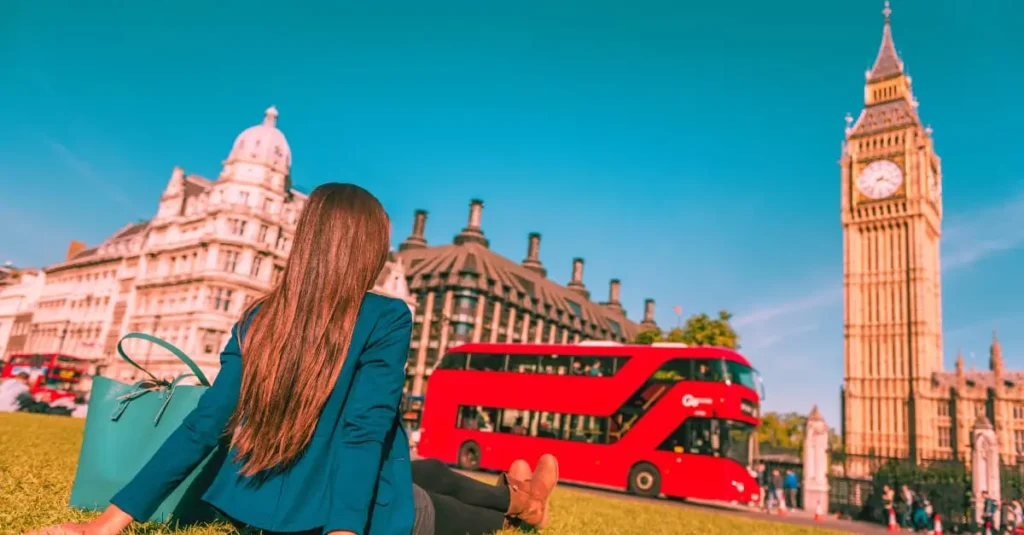
Is urgent care a thing in the UK?
Urgent care centers in the UK offer medical services for conditions that need quick attention but are not life-threatening.
For tourists, urgent care is a practical option because you can just walk in without an appointment. Here are some conditions that are appropriate for an urgent care visit:
- Minor injuries: cuts requiring stitches, minor burns
- X-rays: for minor injuries like sports injuries
- Dental Care: urgent dental care for severe dental pain or dental trauma
- Vaccinations: it’s not uncommon to need vaccinations while traveling from country to country. Very often this service is available in travel clinic but also in some urgent care centers
- Access to medical specialists: very often urgent care centers provide access to pediatric urgent care, orthopedic specialists and ultrasound scan
- Sports physicals: you’re planning to run the marathon in Lisbon? You will need a medical certificate to confirm you’re in good health and capable of handling the physical demands of a marathon
The costs at urgent care centers can vary, so it’s good to check your options.
How does urgent care work in the UK
Urgent care centers in the UK are really convenient. You don’t need an appointment – you can just walk in. They have extended hours, including evenings and weekends, to make it easy to get care outside regular GP hours.
When you arrive, a triage nurse will assess your condition and determine the best course of action. These centers can help with minor fractures, cuts, and infections and even perform X-rays and basic tests.
If you need more specialized care, they can refer you to a specialist or a hospital emergency department. It’s a great option for non-life-threatening medical issues.
After hours doctors
After hours doctors provide medical care outside of regular clinic hours, typically in the evenings, nights, weekends, and public holidays. They are helpful when you need medical attention, but your usual primary care doctor is unavailable.
This service is perfect for:
- Conditions that need prompt attention but are not emergencies.
- Chronic illness flare-ups or complications outside of normal hours.
- Tourists needing medical help while visiting a new place.
You can access after hours doctors in several ways, such as:
- Telephone services: Many areas have dedicated after-hours phone lines where you can speak to a doctor for advice. The NHS 111 service in the UK is a common example.
- Home visits: Some after-hours services offer home visits, where a doctor comes to your location to provide care.
- Urgent care centers: These centers often extend their hours into the night and weekends, providing access to after-hours care.
- Online services: Virtual consultations with doctors via video call or phone are increasingly popular, providing convenience and quick access to medical advice and prescriptions.
Doctorsa offers 24/7 access to a doctor daily, even on bank holidays, ensuring you can receive medical care whenever needed. This service helps address unexpected health concerns while traveling in the UK.
How to get a prescription in the UK
If you ever need a prescription in the UK, whether for a routine refill, antibiotics, or an emergency, there are several options available.
You can visit a local GP or medical clinic for a consultation. After evaluating your symptoms, the doctor can provide you with a prescription if needed.
Another option is to use online services like Doctorsa and request a private prescription online. They connect you with licensed doctors who can issue a prescription, which can be filled at any pharmacy in the UK.
Prescription refill
If you need a prescription refill while traveling in the UK, the process is simple. All you need to do is schedule an appointment with a general doctor or visit a walk-in clinic.
Remember to take along your original prescription or medication packaging, and the doctor will be able to write you a new prescription.
After that, you can take your new prescription to a local pharmacy, and the pharmacist will arrange for your medication to be sorted out.
Online prescription refill
For your convenience, you can also get a prescription refill online. However, this will depend on the type of medication, so it is important to confirm which medications cannot be issued via online prescriptions in the UK.
Licensed doctors on Doctorsa can also quickly provide prescription refills. After a brief consultation, the doctor can send the prescription directly to you or a nearby pharmacy within minutes.
Additionally, several pharmacies have online services that allow you to request a refill and arrange for home delivery or store pickup.
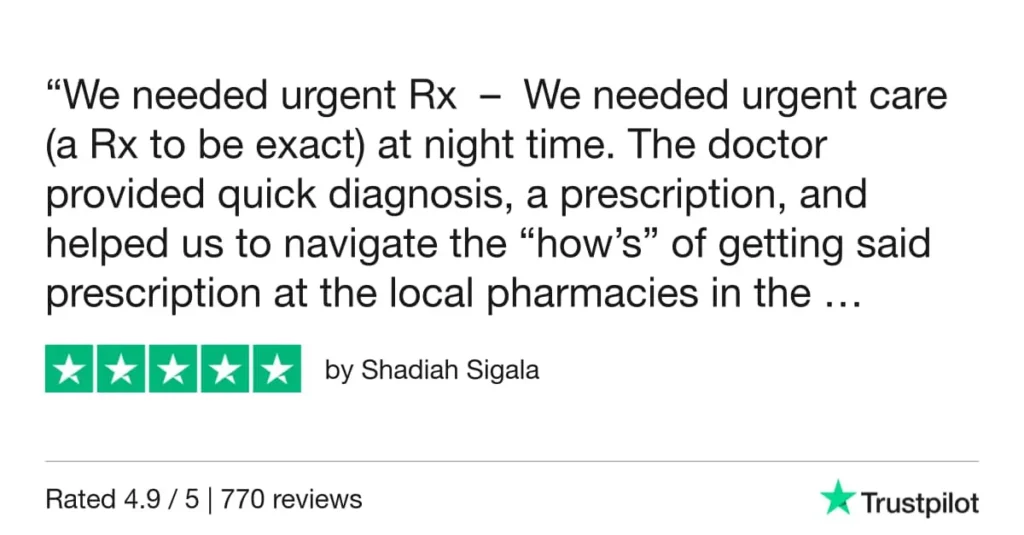
How to get antibiotics in the UK
To get antibiotics in the UK, it’s best to check in with a GP or visit an urgent care center. You can get the prescription for the antibiotics either in person or by consulting them online.
Don’t forget that you can also use consultation services like Doctorsa. The doctor will diagnose your condition and prescribe the antibiotics you need.
Once you have the prescription, you can take it to any pharmacy to have it filled.
Can pharmacists prescribe antibiotics in the UK?
In the UK, pharmacists can prescribe certain antibiotics under specific conditions:
- Minor ailments service: Pharmacists can provide antibiotics for specific minor ailments without a GP’s prescription. Conditions like UTIs are often covered but only in women and only within a certain age range.
- Private consultations: Some pharmacies offer private consultation services where pharmacists can assess and prescribe antibiotics if appropriate.
How much do antibiotics cost in the UK?
The cost of antibiotics varies:
- NHS prescription: If you receive a prescription through the NHS, there is a standard prescription charge, currently £9.90 per item in England. Prescriptions are free for locals in Scotland, Wales, and Northern Ireland.
- Private prescription: The cost of a private prescription will depend on the specific antibiotic and the pharmacy’s pricing.
How to get an emergency prescription in the UK
To get an emergency prescription in the UK, visit a GP or urgent care center or use an online doctor service like Doctorsa for a quick consultation.
They will assess your situation and provide a prescription if necessary. For tourists, this service can be useful if you’ve lost your medication or run out unexpectedly.
Common scenarios
Here are some common scenarios you might encounter and what to do if you face them in the UK.
What to do if you have food poisoning in the UK
Food poisoning can be an unpleasant experience, especially while traveling.
If you have food poisoning symptoms such as nausea, vomiting, diarrhea, and stomach cramps, take the following steps:
- Drink plenty of fluids to prevent dehydration.
- Rest as much as possible to allow your body to recover.
- Seek immediate medical help if your symptoms are severe, persistent, or include high fever and bloody stools.
You can use online services like Doctorsa to get immediate medical advice for about $20, visit a walk-in clinic, urgent care center, or call NHS 111 for advice on what to do next.
I'm running out of medication and I need a prescription refill
Running out of medication while traveling can be stressful. Here’s how to handle this situation in the UK:
- Use online doctor services: Platforms like Doctorsa offer virtual consultations. They can quickly assess your situation and send a prescription to a nearby pharmacy.
- Visit a GP or urgent care center: You can make an appointment with a general doctor or visit an urgent care center for a consultation and prescription refill.
- Pharmacy assistance: Some pharmacies offer online services where you can request a refill and arrange for home delivery or store pickup.
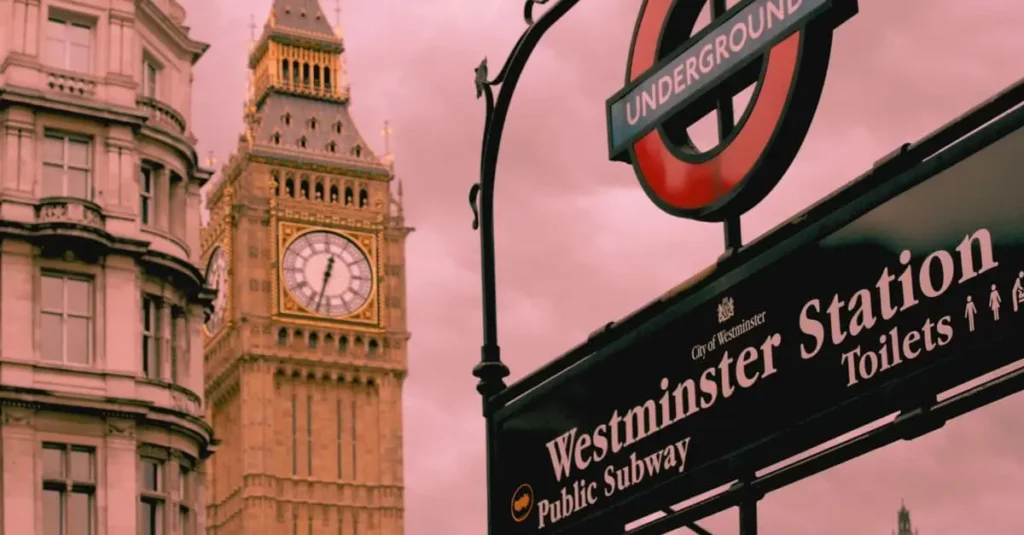
How do I get emergency medical help in the UK?
Traveling can sometimes lead to unexpected medical emergencies. Knowing how to get emergency medical help in the UK can make a critical difference.
What is an emergency
A medical emergency is a serious and sudden health problem that requires immediate attention to prevent severe harm or death, such as severe bleeding, difficulty breathing, severe allergic reactions, or serious injuries.
What happens if I have a medical emergency in the UK and I need to go to the hospital?
If you have a medical emergency and need to go to the hospital:
- Call 999 for an ambulance. Provide your location and describe the emergency clearly.
- Trained paramedics will arrive to provide immediate care and transport you to the nearest Accident & Emergency (A&E) department if necessary.
- Once at the hospital, you will be triaged based on the severity of your condition. The most critical cases are treated first.
Is the ER free in the UK?
Under the NHS, emergency room (ER) services are free for everyone, and all emergency treatment is free for UK residents.
Visitors, including tourists and foreigners, also receive free emergency treatment in A&E departments.
However, there may be charges for any follow-up treatment or additional services received after the emergency is dealt with.
Therefore, it’s advisable to have travel insurance that covers medical expenses.
Seeing a doctor in the UK
When traveling in the UK, it’s important to know how to access medical care if needed.
What to expect during an in-person visit
When visiting a doctor in person in the UK:
- Appointment or walk-in: Depending on the urgency, you can either book an appointment with a general doctor or visit a walk-in clinic.
- Check-in process: On arrival, check-in at the reception. Provide identification and any relevant medical documents or insurance details.
- Consultation: During the consultation, the doctor will ask about your medical history, discuss your symptoms, and perform a physical examination if necessary.
- Diagnosis and treatment: The doctor will diagnose the condition and discuss treatment options. This may include prescribing medication, recommending tests, or referring you to a specialist.
- Follow-up: Sometimes, you may need to schedule a follow-up appointment to check on how you’re doing or monitor your progress.
What to expect during an online visit
For a more convenient option, many tourists choose online doctor consultations:
- Booking an appointment: You can use a reputable online healthcare service like Doctorsa to book an appointment. You can often choose a time that suits you.
- Virtual check-in: Before the consultation, you may need to fill out an online form with your symptoms and medical history.
- Consultation: In a few minutes, you’ll connect with the doctor via video call. Remember to have a good internet connection and find a quiet place for the call.
- Diagnosis and treatment: The doctor will discuss your symptoms and medical history, similar to an in-person visit. They can send a prescription directly to you or your local pharmacy if needed.
- Follow-up: Any necessary follow-up appointments can also be done online, ensuring continuous care without the need to visit a clinic. Doctorsa provides a free 7-day follow-up with your doctor at no extra charge.
How much does it cost to see a doctor in the UK?
When you’re in the UK and need to see a doctor, you can consider using telehealth services like Doctorsa for online consultations and prescriptions.
They offer competitive pricing, typically ranging from €15 to €30, depending on the healthcare provider. It’s a convenient option to consider.
Can Tourists Get Free Healthcare in the UK?
Tourists can access certain free healthcare services in the UK, but it’s important to understand the limitations:
- NHS emergency care: Emergency treatment at the A&E departments is free for everyone including tourists. This includes the initial consultation and treatment.
- NHS 111 service: The NHS 111 telephone service, which provides medical advice and directs you to the appropriate care, is also free.
However, beyond emergency care, most other NHS services are not free for tourists. This includes non-emergency GP visits, specialist consultations, and follow-up treatments.
Charges will apply unless you are from a country that has a reciprocal healthcare agreement with the UK, such as Australia, New Zealand, and EU countries.
Doctor visit cost with insurance in the UK
While travel insurance can help with serious medical issues requiring hospital admission, it can be money and time-consuming and stressful for minor illnesses.
Travel insurance often involves a deductible.
A deductible is the amount of money you have to pay out of your own pocket for a claim before your insurance starts covering the rest.
For example, if you have a $500 deductible and you have an accident that costs $1,000 in damages, you pay the first $500, and your insurance covers the remaining $500.
The deductible is how much risk you’re agreeing to take on before your insurance kicks in.
This is often unfavorable for travel insurance policies. Typically, the lower the cost of the insurance, the higher the deductible. For example, a low-cost plan priced at $20 per week might come with a $100 deductible, meaning you must pay the first $100 out-of-pocket before coverage begins. This could result in you bearing the full cost for something as basic as a general consultation.
Doctor visit cost without insurance in the UK
If you’re visiting the UK without travel insurance or your insurance doesn’t cover medical expenses, you’ll have to pay for medical services out of pocket.
For a private doctor consultation, the cost usually can vary depending on the location and medical clinic. Also, depending on the specialist’s field, seeing a specialist privately can be pricier.
On top of these fees, you’ll also need to consider additional costs for diagnostic tests, treatments, and prescriptions.
Prescription medication costs also vary, but private prescription costs can be higher than the NHS depending on the medication.
How much does it cost to see an online doctor
With Doctorsa, you can consult a doctor for around $20, though prices may vary as each provider sets their own fee.
Conclusion
Navigating healthcare in a foreign country can be overwhelming, but with this guide, you’re well-equipped to see a doctor in the United Kingdom. Whether you choose online consultations, urgent care, or local GPs, remember that help is always available. Stay informed, stay healthy, and enjoy your UK trip with peace of mind.
Sources
111 online. (n.d.). https://111.nhs.uk
Find services near you. (n.d.). https://www.nhs.uk/nhs-services/services-near-you/
Healthwatch. (n.d.). https://www.healthwatch.co.uk/your-local-healthwatch/list
How charges for NHS healthcare apply to overseas visitors. (2020). https://www.gov.uk/government/publications/how-the-nhs-charges-overseas-visitors-for-nhs-hospital-care/how-the-nhs-charges-overseas-visitors-for-nhs-hospital-care
How pharmacies can help. (2024). https://www.nhs.uk/nhs-services/pharmacies/how-pharmacies-can-help/
Medical services in the UK. (n.d.). https://uk.usembassy.gov/u-s-citizen-services/medical-information/
NHS prescription charges. (2023). https://www.nhs.uk/nhs-services/prescriptions/nhs-prescription-charges/
Prescriptions. (2024). https://www.nhsinform.scot/tests-and-treatments/medicines-and-medical-aids/prescriptions/
Prescription charges and exemptions. (2024). https://www.nhsinform.scot/care-support-and-rights/nhs-services/pharmacy/prescription-charges-and-exemptions/
When to call 999. (2023). https://www.nhs.uk/nhs-services/urgent-and-emergency-care-services/when-to-call-999/
When to visit an urgent treatment centre (UTC). (2021). https://www.nhs.uk/nhs-services/urgent-and-emergency-care-services/when-to-visit-an-urgent-treatment-centre/


